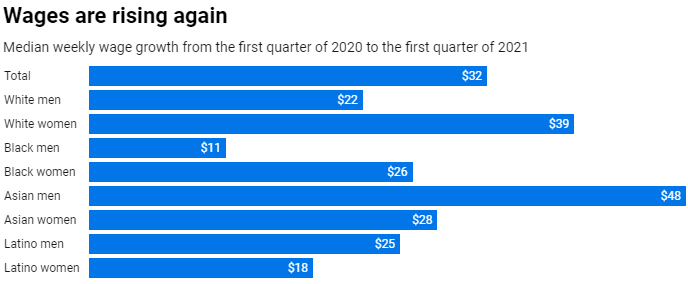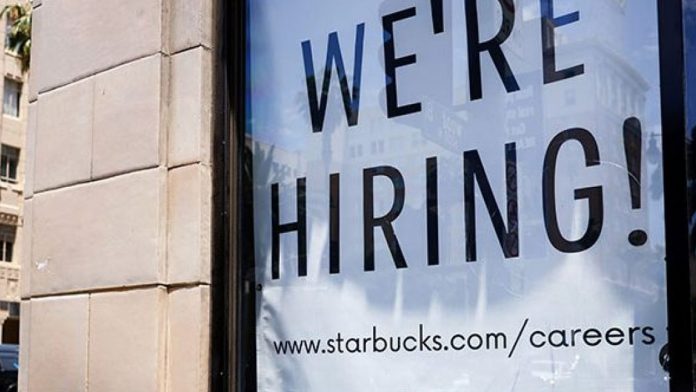Wages Are Rising Unequally — With Black Men and Latinas Seeing the Fewest Gains
Many are hearing about the labor shortage. The Wall Street Journal says so. So does the U.S Chamber of Commerce and many corporate CEOs.
Others say the labor shortage is mostly a myth, that businesses could easily find more workers if they just offered them more money. After all, that’s the law of supply and demand.
Preliminary data suggests that employers are starting to raise pay again, luring hesitant workers back after more than a year of COVID-19 lockdowns.
Wages rose across all racial groups in the first three months of 2021 — the first time that happened since the pandemic began to shut down the U.S. economy, according to the latest data from the Bureau of Labor Statistics. The typical full-time worker got a $32 weekly raise during that time, outpacing inflation.
But if you look closely at the numbers, a familiar theme emerges. The recovery is not the same for everyone. A Center for Public Integrity analysis of the data shows that white women and Asian men saw the largest gains in weekly pay — $39 and $48, respectively.
Meanwhile, Black men and Latinas got less than half as much. The $11 pay increase for the typical Black man was the smallest among all groups. The typical Latina received an $18 weekly raise.

These pay gaps, which come on top of longstanding income inequality, are the latest example of the pandemic’s uneven economic impact. Black and Latino employees, many of whom work in the service industry, lost their jobs at a higher rate than everyone else. They were also less likely to qualify for unemployment aid because many live in states that have made it harder to access the benefit.
“The [labor] market won’t correct 100 years of racial and gender inequality that have been baked into the system,” said Randy Albelda, an economics professor at the University of Massachusetts Boston.![]()
SOURCE ⇒ PUBLICINTEGRITY
Consider supporting AMIBC™. Contribute by clicking on the advertisers and sponsors featured on AMIBC™ and please utilize them. Readers from around the world, like you, make our work possible. We need your support to deliver quality, vetted, investigative journalism – and to keep it open for everyone. At a time when factual, honest reporting is critical, your support is essential in protecting our editorial independence. The narratives and issues impacting all Americans is tantamount to the AMIBC™ platform. Every contribution, however big or small, is valuable for our future. Make sure to join the AMIBC Founders Club to maximize the total advantage of being a subscriber.





































